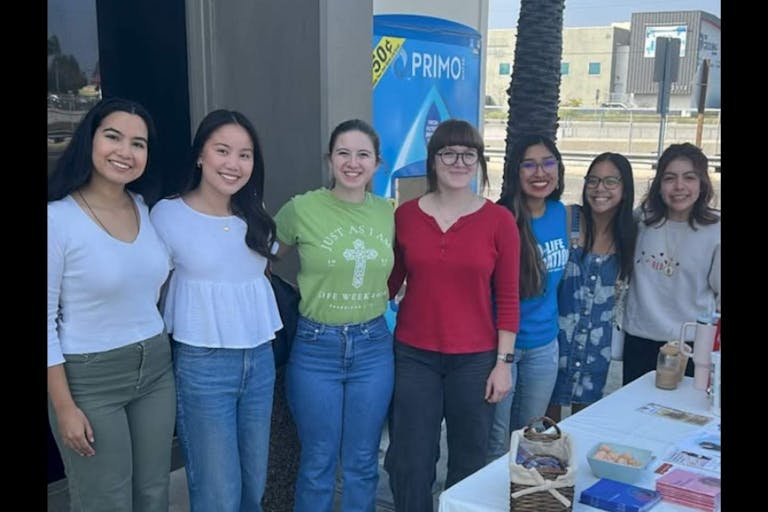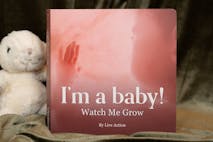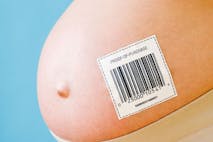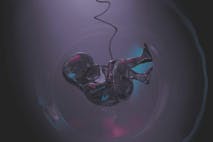
Christian college allows pro-life club after resolving 'misunderstanding'
Bridget Sielicki
·
Human Rights·By Nancy Flanders
Donor-conceived individuals in UK will soon be able to get info on biological parents
Individuals in the UK who were created via sperm or egg ‘donation’ will soon be able to learn who their biological parents are thanks to changes in the donor anonymity law.
The change to the law, according to The Guardian, allows donor-conceived adults born after April 1, 2005, to find out the names of the person or persons who are biologically their parents. The Human Fertilisation and Embryology Authority (HFEA) will allow those eligible to apply to the UK fertility regulator beginning in October.
It is estimated that about 30 18-year-olds will be able to search for their biological parent between October and December of this year. The HFEA is raising awareness for the law change through a “Who is My Donor” campaign.
“This is a very important landmark for those people who were conceived by the use of donor eggs or sperm since 2005 as when they reach 18 they will be able to receive identifiable information about their donors,” said Dr. Marta Jansa Perez of the British Fertility Society.
She added, “The British Fertility Society would like to encourage all donors to get back in touch with the clinic where they donated or to contact the HFEA to ensure that their contact details are up to date, so that donor conceived people can have information on their genetic origins if they so wish to.”
READ: Australian sperm donor used fake names to father over 60 children
Some individuals have been learning about the biological origins through home DNA tests. The HFEA believes the law change will allow for a smoother start to the communication between the donor and the donor-conceived.
Professor Jackson Kirkman-Brown, the chair of the Association for Reproductive and Clinical Scientists (Arcs), believes that egg and sperm donation “is an incredible gift.” However, many donor-conceived individuals find it to be an unethical manner of creating children.
Article continues below
Dear Reader,
Have you ever wanted to share the miracle of human development with little ones? Live Action is proud to present the "Baby Olivia" board book, which presents the content of Live Action's "Baby Olivia" fetal development video in a fun, new format. It's perfect for helping little minds understand the complex and beautiful process of human development in the womb.
Receive our brand new Baby Olivia board book when you give a one-time gift of $30 or more (or begin a new monthly gift of $15 or more).
A study out of Harvard Medical School found that 62% of children conceived through donor technologies, including surrogacy, believe it to be unethical and immoral. In short, they feel like business transactions.
One woman told the children’s rights advocacy organization Them Before Us, “Somehow, somewhere, my parents developed the idea that they deserved to have a baby, and it didn’t matter how much it cost, how many times it took, or how many died in the process. They deserved a child. And with an attitude like that, by the time I was born they thought they deserved to have the perfect child… as Dad defined a perfect child. And since they deserved a child, I was their property to be controlled, not a person or a gift to be treasured.”
Katie Breckenridge, External Affairs Liason at Them Before Us, explained, “When you are commissioning and swiping your credit card for a product, even one that you want badly, you are participating in commodification… In this case, the products are human beings.”
The popularity of ancestry DNA kits and shows like PBS’s “Finding Your Roots” are examples of how deeply people feel about learning where they come from. This information is helpful for both physical and emotional health.
According to Cleveland Clinic, knowing your family history and ancestry can give you insights into the health risks and health conditions that may run in your family. It also offers a sense of self-identity and security.
In 2013, The New York Times wrote, “The single most important thing you can do for your family may be the simplest of all: develop a strong family narrative.” Researchers, including Marshall Duke, a psychologist at Emory University, discovered that children who knew more about their family history were better able to handle stress due to having a unifying narrative with their parents, grandparents, and so on. It’s the knowledge that you belong to something bigger than yourself that helps to carry you through difficult times.
By the end of 2024, the number of donor-conceived individuals eligible to seek out their donor’s name in the UK will rise to 700, and by 2030, it is anticipated that 11,427 young adults will be able to request information about the person who helped to create them.

Live Action News is pro-life news and commentary from a pro-life perspective.
Contact editor@liveaction.org for questions, corrections, or if you are seeking permission to reprint any Live Action News content.
Guest Articles: To submit a guest article to Live Action News, email editor@liveaction.org with an attached Word document of 800-1000 words. Please also attach any photos relevant to your submission if applicable. If your submission is accepted for publication, you will be notified within three weeks. Guest articles are not compensated (see our Open License Agreement). Thank you for your interest in Live Action News!

Bridget Sielicki
·
Human Rights
Carole Novielli
·
International
Angeline Tan
·
Human Rights
Nancy Flanders
·
Human Rights
Angeline Tan
·
Human Rights
Angeline Tan
·
Human Interest
Nancy Flanders
·
Investigative
Nancy Flanders
·
Pop Culture
Nancy Flanders
·
Human Interest
Nancy Flanders
·
Human Interest
Nancy Flanders
·